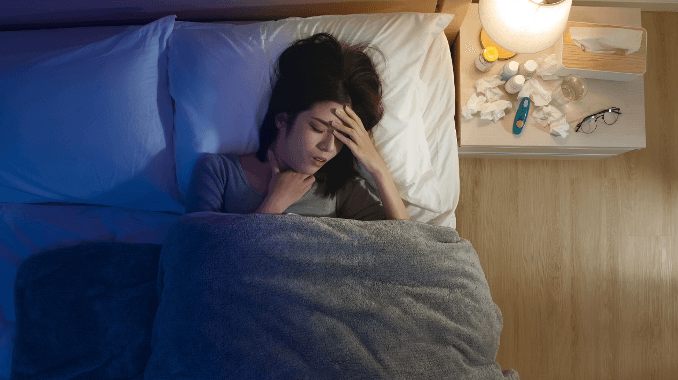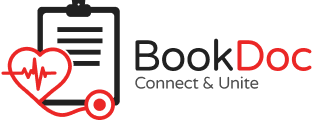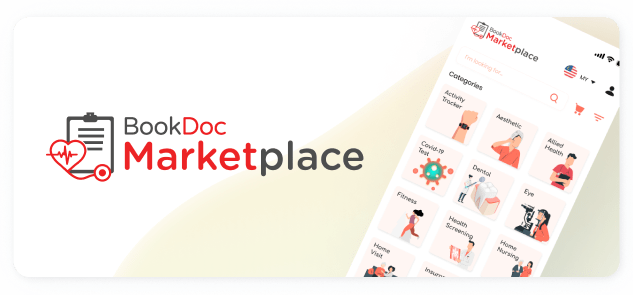 COVID-19 has changed the game, and while it may now be endemic, it still requires a different level of attention. The key to navigating this new normal is not just about prevention but also about prompt action when symptoms strike. Here’s why seeking immediate treatment for COVID-19 can make all the difference.1
COVID-19 has changed the game, and while it may now be endemic, it still requires a different level of attention. The key to navigating this new normal is not just about prevention but also about prompt action when symptoms strike. Here’s why seeking immediate treatment for COVID-19 can make all the difference.1
COVID-19 symptoms can range from mild to severe, and the virus can escalate quickly. Early intervention is crucial. Think of it like catching a small leak before it floods your house. The sooner you address it, the less damage it can cause. Seeking prompt treatment can help manage symptoms more effectively and reduce the risk of complications.1,2
One of the most significant benefits of early treatment is the potential to reduce the severity of the illness. Antiviral medications and other treatments are most effective when administered early in the course of the disease. This can mean the difference between a mild illness and a severe one that requires hospitalization.3
Prompt treatment also helps protect those around you. By seeking medical advice early, you can get guidance on how to isolate effectively and prevent spreading the virus to family, friends, and coworkers. It’s a small step that can have a big impact on your community’s health. Plus, early treatment can help you recover faster, getting you back to your daily life and responsibilities sooner.4
Another critical aspect of seeking prompt treatment is the ability to monitor and manage any underlying health conditions that could be exacerbated by COVID-19. Conditions like diabetes, heart disease, and respiratory issues can complicate a COVID-19 infection. Early medical intervention can help manage these conditions and reduce the risk of severe outcomes.4
In addition to medical treatments, early intervention allows for supportive care that can make a big difference in your recovery. This includes hydration, rest, and over-the-counter medications to manage symptoms like fever and cough. Your healthcare provider can offer personalized advice based on your specific symptoms and health history.5
So, what should you do if you start feeling unwell? First, don’t ignore the symptoms. Even if they seem mild, it’s better to be cautious. Contact your healthcare provider for advice on testing and treatment options. Many clinics offer telehealth services, making it easier than ever to get medical advice from the comfort of your home.2
Remember, seeking prompt treatment is not just about protecting yourself; it’s about protecting your loved ones and your community. In this new normal, quick action can have a big impact. So, if you start feeling under the weather, don’t wait. Reach out to your healthcare provider and take the necessary steps to get better fast.4
References:
- American Lung Association. Epidemic, Pandemic and Endemic: What is the difference? (January 21, 2022) https://www.lung.org/blog/epidemic-pandemic-endemic-covid Accessed 27 April 2025
- United States Centers for Disease Control. Symptoms of COVID-19. Symptoms of COVID-19 | COVID-19 | CDC. Last Accessed: 27 April 2025
- Yu, T., Tian, C., Chu, S., Zhou, H., Zhang, Z., Luo, S., Hu, D., & Fan, H. (2020). COVID‐19 patients benefit from early antiviral treatment: A comparative, retrospective study. Journal of Medical Virology, 92(11), 2675–2683. https://doi.org/10.1002/jmv.26129
- Centers for Disease Control and Prevention – Types of COVID-19 treatment. ( 8 May 2025). https://www.cdc.gov/covid/treatment/index.html Accessed 27 April 2025
- Mayo Clinic. Tips for treating COVID-19 at home. (5 April 2025). https://www.mayoclinic.org/diseases-conditions/coronavirus/in-depth/treating-covid-19-at-home/art-20483273 Accessed 27 April 2025













